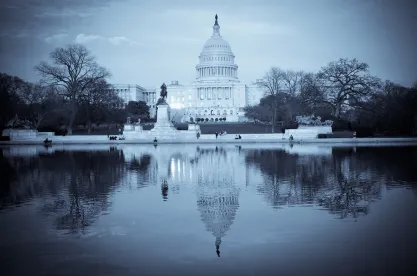On July 27, 2020, Senate Republicans released their proposal for the next round of federal legislation to provide relief regarding the coronavirus pandemic. The entire $1 trillion Republican proposal will be known as the Health, Economic Assistance, Liability, and Schools Act (“HEALS Act”), but it will also be broken down into eight smaller bills for negotiations. This is the Republican counter to the Democrats’ HEROES Act, which has already passed the House of Representatives. The HEROES Act is a $3 trillion relief package – you can find our summary on it here.
The eight smaller bills that comprise the HEALS Act are linked along with summaries as follows:
-
Sen. John Cornyn’s (TX) Safe to Work Act on liability protections: Text
-
Sen. Chuck Grassley’s (IA) American Workers, Families, and Employers Assistance Act on assistance payments and unemployment insurance: Text and Section-by-Section
-
Sens. Marco Rubio (FL) and Susan Collins’ (ME) Continuing Small Business Recovery and Paycheck Protection Program Act on the small-business relief loan program: Text and Section-by-Section
-
Sen. Richard Shelby’s (AL) supplemental appropriations legislation, the central funding bill for the package: Text and Section-by-Section
-
Sen. Mitt Romney’s (UT) The Trust Act, which will address the debt and the Social Security Trust Fund: Text and Section-by-Section
-
Sen. Lindsey Graham’s (SC) Restoring Critical Supply Chains and Security Act to bring PPE Supply from China to the U.S.: Text
-
Sen. Lamar Alexander’s (TN) Safely Back to School and Back to Work Act: Section-by-Section
-
Sen. Tim Scott's (SC) Supporting America's Restaurant Workers Act to aid restaurants and restaurant workers by expanding the deduction for business meals: Text
Top 10 Takeaways of the HEALS Act
-
Extends the Paycheck Protection Program by adding $60 billion for small businesses with fewer than 300 employees and demonstrable revenue losses since the pandemic began.
-
Provides $100 billion in long-term, low-cost loans to seasonal businesses and those located in low-income areas with demonstrable revenue losses since the pandemic began.
-
Shields businesses, schools, charities, and other organizations from COVID-19 related lawsuits through October 1, 2024 as long as the organization makes “reasonable” efforts to follow public health guidelines.
-
Includes tax credits for the increased costs to businesses needed to operate during the pandemic. It also includes an expanded tax break for businesses that are providing meals and entertainment for clients.
-
Expands the employee retention tax credit for businesses that keep workers on their payrolls.
-
Extends the federal supplemental unemployment benefits enacted as part of the CARES Act for two months at $200 per week on top of state-level benefits.
-
Includes direct payments of $1,200 with incomes of $75,000 or less a year, with $500 in benefits for each child or adult dependent.
-
Provides $105 billion in funding for schools, with flexible funding for Governors to spend based on the states’ needs. Two-thirds of the money will be allocated to schools with reopening plans. Other funds will create emergency scholarships to use towards qualified educational expenses, including private school tuition.
-
Creates tax credits to encourage manufacturing of domestic personal protective equipment.
-
Includes $20 billion in aid for agriculture, which can be allotted broadly under the discretion of U.S. Department of Agriculture Secretary Sonny Perdue.
Democrats have not received the proposal warmly. The Democratic Speaker of the House of Representatives, Nancy Pelosi, had harsh words for the plan, indicating that the legislation has little chance of becoming law as it is currently written. Senate Republicans are also divided on the legislation, with some members wanting to spend far less and others in favor of more aid to state and local governments. Negotiations will continue as they hope to reach agreement in the upcoming weeks before Congress takes its August recess.





 />i
/>i
